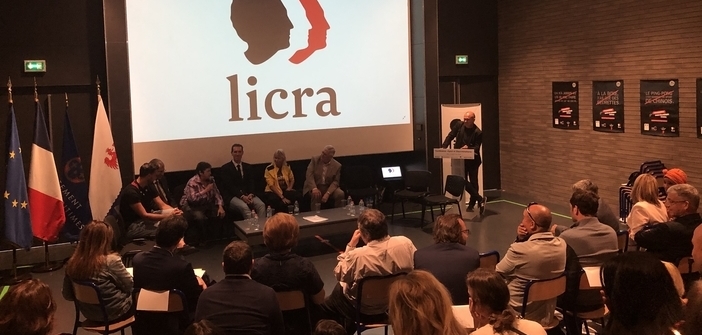With the Women’s World Cup in football in the starting blocks, what better way to kick off the most publicized sporting event in the world than a conference on discrimination in sports?
Organized by the Licra (International League against Racism and Anti-Semitism) at the National Sports Museum, the conference titled “Sports and Discrimination” was held, notably in the presence of Martine Ouaknine, Deputy Mayor, Mario Stasi, President of Licra National, and Alexandre Aimo-Boot, President of Licra Côte d’Azur.
The conference program included discussions on equal opportunities in sports and the development of sports as a universal value in society, but also racism, anti-Semitism, sexism, and homophobia as sources of discrimination in football.
“Sports is a social bond factor that transcends differences and prejudices,” expressed Martine Ouaknine, adding that, “however, there are physical and verbal abuses that shatter the unity of sports.” The Deputy Mayor emphasizes one of the solutions against discrimination in sports, which is “to empower sports actors to combat discrimination.” This observation was complemented by the President of Licra National, expressing his commitment: “We cannot remain indifferent; the fight must become a conviction in everyone’s daily life so that each can fight as they can.“
The Role of Athletes: From Social to the Field
The themes addressed by the various panel discussions were analyzed through the testimonies of experts, associations, leaders, athletes, and enthusiasts.
Three panel discussions:
⁃ Athlete's role and social representations in sports, the relation to body in football. The issue of sexism is central to the debate, seen as a traditional phenomenon in football, although it is a universal sport. According to Fabrice Mauro, official speaker of OGCN, “discrimination comes from the public, from society, and rarely from the team.”
⁃ Athletes' journeys and on-field realities, the relation to sports through football. Is field experience an asset for fighting against racism and sexism?
⁃ Discriminatory acts, preventive measures, and judicial consequences.
The panel discussions highlighted common solutions to fight against all forms of discrimination within football. Emphasizing education for combating, ensuring women can make a living from their sport, changing the image of women’s sports, particularly in football, is crucial. The role of the players is important; they need to be aware of this role as they are followed by thousands of young people on social media.


